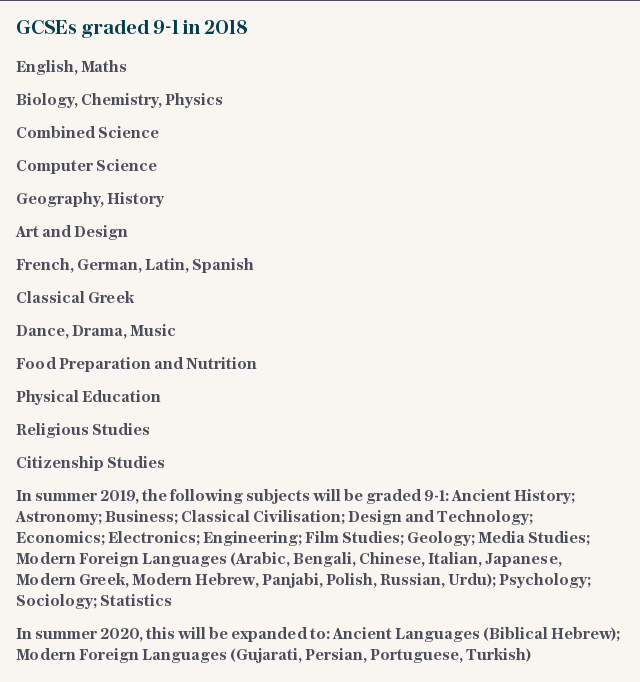GCSE results: re-marks, retakes and the step up to sixth form

As of this morning the months of waiting are finally over, with pupils across the country opening their GCSE results and either celebrating or reflecting on their marks.

But what to do next? Here are a few scenarios that might help you or your teenager figure out their next steps.
Done better than expected in one particular subject?
It can be a great feeling to know that you’re up there with the best of them and really could tackle that A-level you originally decided against.
All schools and sixth form colleges should be able to offer flexibility if you want to change a subject. But – some caution here – go back to your reasons for not choosing that subject in the first place: do they still stand?

An A* at GCSE does not guarantee that you are going to sail through A-level. If you don't enjoy the subject, chances are you simply won’t do as well.
As your teachers will have told you, A-level studies require passion and perseverance in equal measure.

Done worse in one of your chosen subjects?
Seek advice from your subject teacher at GCSE – was it a particularly hard paper? Is he/she surprised at your grade?
Reflect on the exam, your revision. Be honest with yourself. Did you really give it your best shot? If so, it may be worth having a look at the script to find out what went wrong.
Fundamentally, if your passion for the subject is still there, it’s more than likely that your teacher will advise you to stick with it.
Grades across the board not what you wanted?
Don’t panic. Your school’s teachers and careers advisers are there to help. You can re-take (and if your grades are lower than a C in English and Maths, you will have to re-take), or re-think your sixth form courses.
What do you enjoy doing most? Do you really want to continue down an academic route? Would BTECs, or an apprenticeship be better? Friends and parents will have a view, but this is your life, your future.

Not sure how to handle the step up from GCSE to sixth form?
This is the bit when your education really does start to become your business. You’re finally at the top, you've ditched the subjects you didn't like and have control of what you're studying and why.
You’ll enjoy different interaction with your teachers and have a say in how your school is run.
A scholarly style of learning will be something new, however. Take the opportunity now to see what you can read in preparation. Look at the course content and anticipate questions, jot down thoughts and, perhaps most satisfying, in your wider reading of news and current affairs, assess how your studies might relate to what is happening in the world.
You’ll be moving up several gears in your analysis and thinking – an empowering thought.
Your GCSE results day questions answered
Have a question regarding GCSE results day? What is the best next step for your child’s education? The Telegraph are hosting a Q&A session with a number of established education specialists to answer all of your GCSE related questions.
Click this link and leave a question in the comments section, or join us on the day from 12pm for live responses.

Not sure how to fit in ‘the other stuff’?
Generally, at A-level, the rule of thumb is five extra hours of independent study per subject per week. That leaves plenty of time to keep up with your interests outside of school (and staying physically active is vital for mental wellbeing, so don’t drop those sports).
This is the moment when you can inspire younger students. If your school doesn't have a Pokemon club and you think they should, start one. It'll be a while before you can so directly influence the lives of those younger than you again, so make the most of it and if you have a chance to volunteer in the wide community, do.
Such enriching experiences will help shape you and enable you to present the individual you are, with your own unique strengths and passions, on your Ucas application for university in due course.
If you haven't already got some kind of paid employment or weekend job, look to get one. Working brings a different perspective and the routine – whether observing a rota, wearing the right kit, being reliably on time – helps develop the kind of resilience and self-discipline that you will need to flourish in whatever you do.

Finally, have fun!
Life beyond GCSEs is about taking control: of your education, your choices, your social life and your future. For most, these are the golden years. Enjoy and live adventurously.
Jane Lunnon, head of Wimbledon High School GDST

 Yahoo News
Yahoo News 
